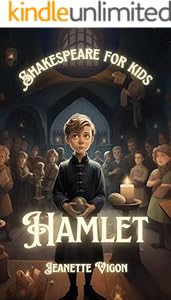Saying something is cringe is cringe, old man.
Bea, Anyone But You
This interview with Will Gluck, director of Much Ado About Nothing adaptation Anyone But You, caught my attention for all the wrong reasons. The director “breaks his silence” over the “Shakespeare cringe scenes.”

Shakespeare is the cringe part? Really? This is a movie that’s gone viral on TikTok for images of girls trying to hide their boyfriends’ eyes during the completely gratuitous shower scene. If you’re Gen X like myself, you no doubt remember the gratuitous topless scenes of movies in the 1980s. People don’t typically remember that even John Hughes’ PG-rated hit Sixteen Candles (1984) had a ridiculously bad one where the stars watch the popular girl shower for no reason other than to check that box for the marketing department.
Then there’s the scene of the random guy in the outdoor shower washing … well, everything. While engaging in conversation with another guy.
Or Glen Powell, our Benedick character, panicking about something, stripping off all his clothes, and then throwing them *off a cliff* as his first reaction.
There’s a lot in this movie to cringe at. Part of the opening scene is the classic “went to the restroom and got sprayed by the sink so now people are going to think I peed myself” trope. There’s not a great deal of effort put into these scenes.
But the Shakespeare scenes are cringeworthy? I was ready to throw hands in a comment section, let me tell you.
Luckily, the director is on the right side for this one.
All the cringe scenes in this movie are taken directly from William Shakespeare. The tropes that all the romantic comedies have now, he started it back in sixteen-whatever. That’s where they began. So, yes, you’ve seen it millions of times, but this was honoring the goofiness of that.
I feel like this guy gets it. I was pleasantly surprised by how the Shakespeare references were dropped into what is otherwise, as noted, a pretty by-the-numbers R-rated romantic comedy. At the time, I wrote, ” banking mostly on Sydney-Sweeney-in-a-bathing-suit popularity, but once you’re in your seat, it’s not afraid to say, Ha! This is actually Shakespeare!” and I definitely think this confirms it. I was very surprised when it started breaking records, and people started talking about how this could represent a resurgence for the genre. Gee, I wonder what the secret sauce might be. Is it the gratuitous shower scene? We have the internet now, that’s not as exciting as it once was. Same for the two guys that get nearly naked – if that’s what you want to see, there are plenty of other places to see it.
It’s the Shakespeare, stupid. The Shakespeare structure doesn’t make this movie cringe-worthy. It’s what makes this movie successful. Some of the dialogue is actually Shakespeare, and many of the parts that aren’t are just modern language updates. The irony that the direct tributes to the man are the ones that modern audiences are saying “meh” to bothers me greatly. But then again, a very long list of Gen Z stuff bothers me (and most of Gen X), too, so we should keep things in perspective. If spoon-feeding people Shakespeare against a backdrop of hoping they get to see Sydney Sweeney in the shower is what it takes, well, then let’s keep doing that.





